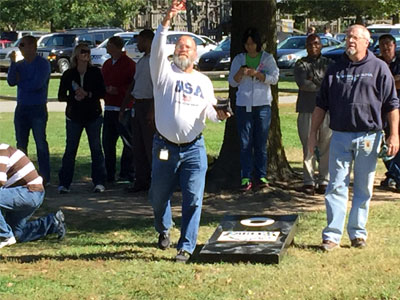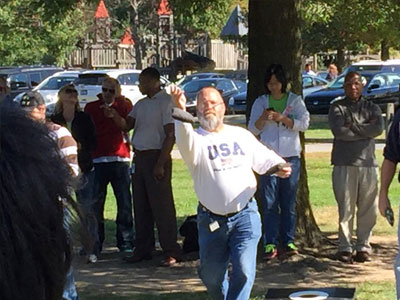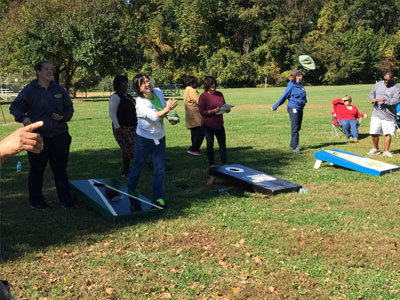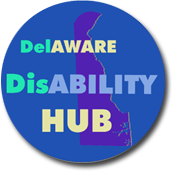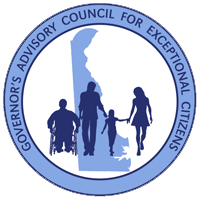Christopher Stetler
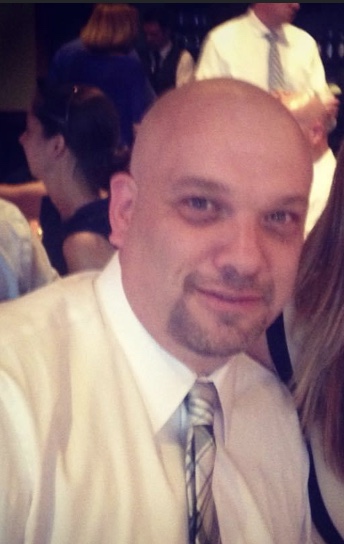
How did you get started working with people with disabilities?
I began working with people with disabilities while I was in high school. I worked for a provider in Pennsylvania called Ken Crest services outside of Philadelphia. I worked at the summer camp as a counselor and eventually started working in the group homes that were located at this site.
How long have you been involved in the Disability Community?
I've been working in the disability community for the last 25 years.
Where are you currently working and in what school district?
I'm currently the Transition Coordinator for the Seaford School District.
When did you become interested and advocating for individuals with disabilities?
I believe I have been advocating for individuals with disabilities my entire educational career. In many cases, students know how to handle a situation. They just need the reassurance to advocate for themselves.
Where did you go to college and what was your major? How did your major influence the work you do advocating for individuals with disabilities?
I attended Kutztown University in Pennsylvania and graduated with a double major in Elementary Education and Special Education. I've also earned my Masters degree in Educational Leadership from the University of Phoenix. When taking my coursework, I learned about the different ways that students learn best. It was then that I knew I had to advocate for students with disabilities and educate others so students could have equal access.
Are you involved with any associations, agencies or organizations that advocate for people with disabilities? If so, which ones?
I am a proud member of the Department of Education's Transition Cadre.
What have you learned from working with people with disabilities?
The biggest thing I've learned while working people with disabilities is that anything is possible if you put the work in and have the passion to accomplish your goal. It always makes me proud when a student I've worked with graduates from college or is very successful in his or her chosen profession/job.
Describe a situation where you encouraged someone to advocate for himself or herself?
At Seaford, we had a student who has quadriplegia and I've been working with since middle school. While he was a sophomore, he asked me about taking drivers education. He really wanted the opportunity to try to earn his license. After some discussion, he decided he would like to discuss this at his current IEP and asked for my help to do so. I worked with him to practice what he would like to say so that he was comfortable at the meeting. During is IEP meeting, he did ask about how he could take the class. We found a driving school in Philadelphia and the team determined that we would apply for services. Once he was accepted, we transported the student to Philadelphia to take half-day lessons in a specially designed van. After ten lessons, the student was driving in traffic on Broad Street in Center City Philadelphia. Currently, he is a student at Del Tech and will complete his lessons when he is ready to purchase a van of his own.
Can you describe some of the best methods to use when working with students/adults or child transitioning from school to work or college?
Once a student has determined an attainable career goal, it is my job to make sure they have a plan to reach that goal. I like to start this conversation in 7th grade during the student's annual IEP meeting. At this meeting, I like to assure students and parents alike that I will be a part of this journey until they leave the district. Making this connection early in the transition process allows families to have a familiar face throughout the transition planning. Parents feel much more at ease when they see a familiar face that has been helping them and the students are comfortable asking questions and sharing their aspirations and goals. In many situations, parents like to refer to various conversations that we have conducted through the years. In many cases, we talk about how the student's career goals change when they have more exposure to different careers.
What are some barriers that transitioning youth encounter? What do you suggest to over come them?
One of the biggest barriers that students transitioning encounter is asking for help in new situations. Many times when in a new job or training program or even in a college class students struggle to advocate for themselves. We always work to train students before the end of their senior year to know who they should contact when they need to talk through a situation or a problem arises. We encourage them to reach out at the start of an issue, so it can be worked out before things get out of hand.
What were you biggest challenges and accomplishments while working with people with disabilities?
One of the biggest challenges for those of us in Sussex County is the lack of options for services and programs for our students. There are just not as many opportunities for students in our county versus the other counties in the state.
Some of my biggest accomplishments have been the successful implementation of Project SEARCH program at the Nanticoke Hospital in Seaford, Delaware. Also, at our high school, we have started a new 18-21-year-old program called Project Life. Additionally, we also had some very successful internships with ServiceSource in places such as Walgreens.
What would you share with those with the same type of job that could inspire them?
Our job doesn't stop when they walk across the stage and receive their diploma. In many cases, we are the person they will need the most. Very often I talk to students after graduation seeking guidance in a wide variety of situations. Nothing is more satisfying then a former student contacts me and says that I was a big part in them being successful. What else could be more inspiring?
